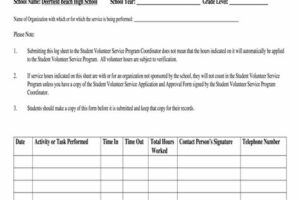Table of Contents
Discover the benefits of volunteering as a valuable work experience. Explore how volunteering can enhance your skills, boost your resume, and open doors to new opportunities. Gain practical knowledge, valuable connections, and a sense of fulfillment while making a positive impact on society. Embrace the transformative power of volunteering and unlock your potential for personal and professional growth.
Volunteering can be an enriching and transformative experience, offering individuals the opportunity to gain valuable work experience while making a positive impact in their communities. Whether you are a recent graduate looking to enhance your resume or someone seeking a career change, volunteering can provide a platform for personal and professional growth. Moreover, it allows individuals to develop essential skills, expand their networks, and gain a deeper understanding of various industries and sectors. In this article, we will explore the significance of volunteering as a work experience and how it can serve as a stepping stone towards achieving your career aspirations.
Introduction
Volunteering is commonly associated with giving back to the community and making a positive impact on society. While its altruistic nature is well-known, many individuals overlook the fact that volunteering can also provide valuable work experience. Whether you are a student seeking to enhance your resume or a professional looking to expand your skill set, volunteering can offer numerous benefits in terms of professional growth and personal development.
Transferable Skills
One of the major advantages of volunteering is the opportunity to develop transferable skills. These are skills that can be applied across various industries and job roles. Through volunteering, individuals can hone their communication, teamwork, problem-solving, and leadership abilities. These skills are highly sought after by employers and can significantly enhance your employability.
Industry Exposure
Volunteering often provides individuals with exposure to different industries and sectors. Depending on the organization you choose to volunteer with, you may gain insights into fields such as healthcare, education, environmental conservation, social services, or even event management. This exposure can help you explore potential career paths and determine which industries align with your interests and goals.
Networking Opportunities
Volunteering can also provide ample networking opportunities. By working alongside professionals in your chosen field, you have the chance to build meaningful connections that may prove beneficial in the future. These connections can lead to mentorship opportunities, job referrals, or even potential employment offers. Networking is a crucial aspect of career growth, and volunteering can serve as an excellent platform to expand your professional network.
Hands-on Experience
In many volunteering roles, individuals gain hands-on experience in their desired field. This practical experience can be invaluable when applying for future employment opportunities. Whether it’s assisting with event planning, conducting research, or working directly with clients, these real-world experiences offer a unique perspective and demonstrate your commitment and passion in the field.
Enhanced Resume
Volunteering can significantly enhance your resume. Employers often value candidates who have demonstrated a commitment to community service and possess a diverse range of experiences. Including your volunteer work on your resume showcases your dedication, willingness to learn, and ability to contribute to a larger cause. It can set you apart from other applicants and make you a more attractive candidate.
Personal Growth
Aside from professional benefits, volunteering also fosters personal growth. It allows you to develop empathy, compassion, and a sense of social responsibility. Engaging with diverse communities and individuals can broaden your perspective and enhance your interpersonal skills. Volunteering often provides a sense of fulfillment and satisfaction that comes from contributing to the well-being of others.
Exploring New Interests
Volunteering offers the opportunity to explore new interests and hobbies. By engaging in different volunteer roles, you can test the waters in various fields without committing to a long-term career path. This exploration can help you discover new passions and strengths that you may not have been aware of previously. It’s a chance to step out of your comfort zone and broaden your horizons.
A Sense of Purpose
Volunteering provides individuals with a sense of purpose. Knowing that you are making a positive impact on the lives of others can be incredibly fulfilling. It gives you a reason to wake up each day with enthusiasm and motivation. Having a sense of purpose is not only beneficial for your mental well-being but can also translate into increased productivity and success in other areas of life.
Conclusion
In conclusion, volunteering is indeed a form of work experience. It offers a wide range of benefits, including the development of transferable skills, exposure to different industries, networking opportunities, hands-on experience, an enhanced resume, personal growth, exploration of new interests, and a sense of purpose. Whether you are seeking professional growth or simply looking to give back, volunteering can play a pivotal role in your journey towards success.
Is Volunteering A Work Experience?
Work experience typically refers to the practical and hands-on knowledge gained through performing tasks and responsibilities in a professional setting. It involves actively engaging in real-world scenarios, contributing to the achievement of organizational goals and objectives, and developing skills relevant to a specific industry or field.
Volunteer Work as Work Experience
Volunteering can indeed be considered as valuable work experience. While it may not involve monetary compensation, it allows individuals to acquire and strengthen a range of transferable skills such as teamwork, communication, problem-solving, and time management. The experience gained through volunteering can be highly regarded by potential employers and can significantly enhance a resume.
Transferable Skills Developed Through Volunteering
Engaging in volunteer work provides individuals with opportunities to develop transferable skills that are universally sought-after in the job market. These skills can include leadership, adaptability, organization, teamwork, and interpersonal communication. Volunteering allows individuals to showcase their abilities to work with diverse groups of people in various settings, demonstrating their capacity to make meaningful contributions.
Networking and Building Professional Relationships
Volunteering often allows individuals to network and create valuable professional relationships. By engaging with like-minded individuals, volunteers can connect with professionals in their field of interest, potential mentors, and even future employers. These connections can be pivotal in securing future employment and exploring career opportunities.
Gaining Industry Knowledge and Exposure
Volunteering in a specific industry or field provides firsthand exposure and insights into the workings of that sector. Whether it be in healthcare, education, or community development, volunteering allows individuals to witness and understand the challenges and requirements of a particular field, ultimately broadening their understanding and knowledge base.
Demonstrating Initiative and Commitment
Volunteering showcases an individual’s initiative, motivation, and commitment to making a positive impact in their community. Employers often value candidates who are not only dedicated to their work but also actively contribute to society. By volunteering, individuals can demonstrate their ability to take the initiative, work collaboratively, and commit to a cause, qualities highly desirable in the professional world.
Bridging Employment Gaps and Lack of Experience
For individuals who may have employment gaps or limited work experience, volunteering can be a strategic way to bridge these gaps. It allows individuals to gain practical experience, bolster their resume, and demonstrate their dedication to personal and professional growth. Volunteering can provide a stepping stone for those seeking to enter or re-enter the workforce.
Personal Growth and Development
Volunteering is not only beneficial for professional growth but also for personal development. It provides individuals with opportunities to challenge themselves, develop new skills, expand their perspectives, and build self-confidence. By engaging in volunteer work, individuals can acquire a sense of fulfillment and purpose, which can positively impact their overall well-being and contribute to their professional success.
In today’s competitive job market, having work experience is often seen as a valuable asset by employers. While traditional work experience is typically gained through paid employment, volunteering can also provide individuals with relevant skills and knowledge that can be beneficial in a professional setting. Therefore, it can be argued that volunteering is indeed a form of work experience.
Here are a few points to consider:
- Transferable skills: Volunteering allows individuals to develop a wide range of transferable skills that can be applied to various work environments. These skills may include communication, teamwork, problem-solving, leadership, and time management. By actively participating in volunteer work, individuals can gain practical experience in applying these skills, making them more marketable to employers.
- Industry knowledge: Volunteering in a specific industry or organization can provide individuals with valuable insights and understanding of that particular field. By immersing themselves in the work environment, volunteers can gain firsthand knowledge of industry trends, best practices, and challenges. This industry-specific knowledge can be seen as a form of work experience, as it demonstrates a genuine interest and commitment to a particular career path.
- Networking opportunities: Volunteering often provides individuals with the opportunity to network with professionals in their chosen field. Building connections with experienced individuals can be advantageous when seeking future employment opportunities. Through volunteering, individuals can expand their professional network, gain mentors, and receive valuable advice and guidance.
- Character-building: Volunteering is often seen as an indication of a person’s character and values. Employers appreciate individuals who are willing to give their time and skills to help others or support a cause they believe in. Volunteering can demonstrate qualities such as empathy, compassion, and dedication, which are highly valued in the workplace.
- Demonstrating initiative: Volunteering shows potential employers that an individual is proactive and takes initiative to gain experience and contribute to society. It showcases a willingness to go beyond the minimum requirements and can highlight an individual’s ability to take on responsibilities and make a positive impact.
In conclusion, volunteering can indeed be considered a form of work experience. It provides individuals with valuable transferable skills, industry knowledge, networking opportunities, and character-building experiences. By actively participating in volunteer work, individuals can enhance their professional profile and increase their chances of securing paid employment in the future.
Thank you for taking the time to visit our blog and read about the importance of volunteering as a work experience. We hope that this article has provided you with valuable insights and helped you understand the benefits of incorporating volunteering into your professional journey. Although the topic may seem unconventional, volunteering can indeed be considered as a form of work experience, allowing individuals to develop essential skills and gain valuable insights into various industries.
Firstly, volunteering provides an opportunity to acquire and enhance transferable skills that are highly sought after by employers. Whether it’s communication, teamwork, problem-solving, or leadership, these skills can be developed and honed through volunteer work. Transitioning smoothly into the workforce requires more than just academic qualifications, and volunteering can serve as a tangible demonstration of one’s abilities and commitment to personal growth.
Furthermore, volunteering offers a unique chance to explore different fields and industries. By dedicating your time and effort to a cause or organization that aligns with your interests, you can gain firsthand experience in areas that you may not have had access to otherwise. This exposure allows you to make informed decisions about your career path and helps you discover new passions and strengths that you may not have been aware of before.
In conclusion, volunteering should not be underestimated as a form of work experience. It provides a platform for individuals to develop transferable skills, gain exposure to various industries, and make a positive impact on their communities. Whether you are a student, a recent graduate, or someone looking to switch careers, volunteering can significantly enhance your employability and enrich your professional journey. We encourage you to consider volunteering opportunities that align with your interests and goals, as it can be a transformative experience that opens doors to new possibilities.
Thank you again for visiting our blog, and we hope to see you soon with more informative and insightful articles. If you have any further questions or would like to share your own experiences with volunteering as work experience, please feel free to leave a comment below. Happy volunteering!
.
Here are some commonly asked questions about volunteering as work experience:
Can volunteering be considered as work experience?
How does volunteering count as work experience?
Is volunteering considered professional experience?
How do I include volunteering in my work experience?
Can volunteering help me get a job?
Volunteering can indeed be considered as work experience. It provides individuals with an opportunity to gain valuable skills, knowledge, and practical experience in a specific field or industry. Although volunteering is typically unpaid, it offers many of the same benefits as traditional paid work experience.
Volunteering counts as work experience because it involves actively participating in tasks, projects, and responsibilities similar to those found in paid employment. It allows individuals to develop transferable skills, enhance their resumes, and demonstrate their commitment to a cause or organization.
Yes, volunteering is considered professional experience. It provides individuals with an opportunity to develop and showcase their professional skills, such as teamwork, communication, problem-solving, and leadership. Many employers value volunteer experience as it demonstrates an individual’s dedication, initiative, and willingness to contribute to their community or a specific cause.
To include volunteering in your work experience, you can list it as a separate section on your resume or CV, just like you would with paid work experience. Provide details about the organization you volunteered for, your role or position, the duration of your involvement, and the key responsibilities or accomplishments you achieved during your volunteer work.
Absolutely! Volunteering can greatly enhance your chances of getting a job. It not only allows you to acquire new skills and experiences but also demonstrates your commitment, passion, and dedication. Employers often appreciate candidates who have engaged in meaningful volunteer work as it showcases their character, values, and desire to contribute to the community.






